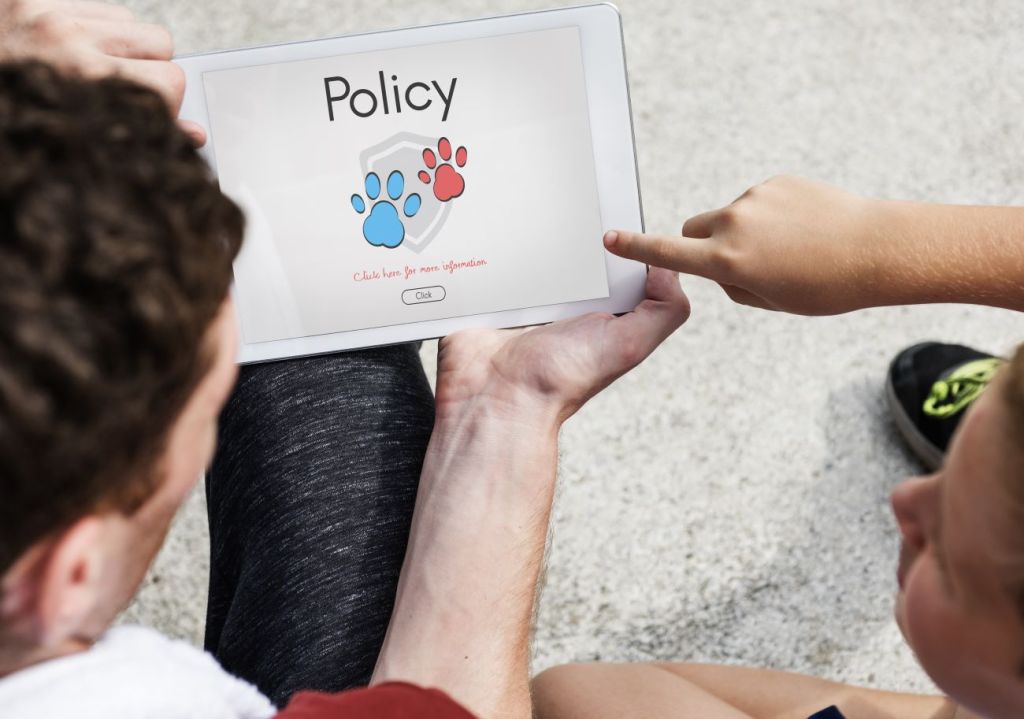Insurance 101: A Guide for Parents and Teens

Insurance is kind of like a seat belt for your finances—teaching kids about insurance at a young age will help them take care of themselves when they’re older. While it won’t prevent an accident or loss, an insurance policy can help pay for things like unexpected car or property damage, medical expenses, legal fees, and, depending on the policy, even vet bills—instead of leaving you to deplete your hard-earned savings. Here’s how home, auto, and health insurance work in Canada.
Key takeaways
- Insurance helps cover the costs of unexpected damage to your home, your car, and the people around you.
- Through periodic payments, or premiums, you pay for any potential damage in small amounts ahead of time.
- You’re legally required to have car insurance in Canada; home insurance or tenant insurance is usually a requirement for people buying or renting a home, although home insurance is not legally mandated.
- The price of insurance premiums is dependent on different risk factors.
- Life insurance policies are not just for the rich or senior citizens; anyone is eligible, even young adults.
What is insurance?
Insurance is a formal agreement between an individual and an insurance company. It allows the insurance holder (you) to be compensated for potential property losses or health-care-related costs, such as a house fire or unexpected dental work. In return, you pay the insurance company scheduled payments, called premiums. Premiums are typically paid every month, quarterly, semi-annually, or once a year.
What insurance buys you is security, because you won’t have to pay for damage or losses out of your own pocket. For example, say you pay premiums on tenant insurance for your apartment, and nothing happens by the end of your policy term (the ceiling didn’t cave in or your apartment wasn’t broken into). In that case, you don’t get your premiums back. But if your ceiling does cave in, or you come home to find the door off its hinges and your limited-edition Air Jordans gone, you can file a claim and get reimbursed. You won’t go into debt fixing or replacing these things. (Though the heartbreak of losing irreplaceable sneakers is, sadly, forever.)
Insurance works like this: The premiums you pay are added to a pool of money paid by the insurance company’s other clients. That cash is then parcelled out. Some goes toward the insurance company’s operating costs, some goes to paying out clients’ current claims, and the rest is invested in low-risk stocks and bonds. These investments go on to generate interest, so the pool of money gets even bigger. These investment profits allow insurance companies to charge their customers relatively low premiums to cover the potential cost of big, expensive emergencies or accidents.
Why do we need insurance?
Life is unpredictable, but insurance gives you a cushion. And, in some cases, you’re legally required to have it. Auto insurance, for instance, is mandatory if you want to drive a car in Canada. While home- and property-related insurance isn’t mandatory by law, having tenant or homeowners insurance is often required by landlords, condo corporations, or mortgage lenders before you can move in.
Other types of insurance are optional, like health and dental insurance. Before you sign up for a policy, check what the policy includes. Some dental coverage, for instance, may cover nothing more than semi-annual checkups if you have healthy teeth. Then look at whether the premiums cost less than the individual treatments you’re likely to need. (If they do, it could be a good investment.) The trick is knowing whether it’s worth paying for a policy in case a costly root canal or cracked tooth is in your future.
Mostly, insurance pays for peace of mind. When an emergency happens, the last thing anyone wants or needs is a financial burden on top of an emotional one. Plus, a recent survey found that 40 per cent of Canadians wouldn’t be able to weather a financial emergency. Paying out a modest monthly premium could be easier than absorbing the full brunt of an unfortunate incident.

Different types of insurance
Every situation calls for its own type of insurance. Here are the insurance policies Canadians purchase most often.
Car insurance
In Canada, all drivers—whether they own or rent a car—must have auto insurance before getting behind the wheel. That’s because automobile accidents happen relatively often, and auto insurance covers all people and property involved in an accident, not just the driver.
The mandatory minimum coverage for car insurance varies among provinces and territories but generally includes four types of coverage:
- Third-party liability coverage: In case you are responsible for damage to other people or property.
- Medical payments and/or funeral-expense benefits: For the driver, passengers, and/or victims.
- Income-replacement benefits: In case you’re unable to work as a result of a car accident.
- Right-to-sue benefits: For the pain and suffering, and any economic loss, that results from a car accident.
Premiums for auto insurance vary a lot. They depend on different risk factors. Teens, for example, usually pay higher premiums because inexperienced drivers are statistically more likely to have accidents. People who live in urban areas tend to pay more than rural drivers because accidents and auto thefts are statistically more likely to occur in a city. Your driving record can also influence your insurance premiums: If you’ve been in an accident before or racked up a bunch of speeding tickets, expect to pay more. If you’ve received formal driver education, however, you could pay less.
Read more about what teens should know when buying their first car.
Home insurance
Generally, home insurance helps protect your physical home as well as the items and people inside it. There are two different types of home insurance:
Property insurance
This applies to a home you own. This policy can pay for stolen or damaged items in your home as well as damage to your home caused by unexpected events. (Think burglaries, fires, weather-related events, and so on.) Property insurance can also include liability insurance in case someone is injured on your property.
Tenant insurance
Tenant insurance is for renters. It protects against loss due to theft, damage to possessions within the rental home, and even the building itself. For example, costs resulting from fire damage that starts in your apartment and spreads to other units could be covered.
Home insurance varies from policy to policy and by the overall risks associated with the property itself. When insurers calculate how much you have to pay for insurance premiums, they’ll consider the age and condition of the house or apartment, the value of the property, the area it’s located in, and the coverage you’re requesting.
Health and dental insurance
Health and dental insurance comes in two different forms:
Public health insurance
In Canada, we have publicly funded health insurance, such as the Ontario Health Insurance Plan (OHIP), which can cover doctor or hospital visits, medical tests, and, as we all know by now, vaccinations. Every province or territory has slightly different coverage. OHIP, for example, also pays for most prescription medication and birth control for people under age 25.
While public health insurance is free in Canada, it doesn’t cover everything, or sometimes it covers just a portion of certain costs, such as ambulance services. Depending on your province or territory, you may have to pay out-of-pocket for things like dental work, vision care, psychotherapy, prescriptions, etc.
Private health insurance
To fill in the gaps, there is also private health coverage. Some post-secondary institutions offer private health and dental benefits to students, while some parents with private coverage can add their kids as long as they are enrolled full-time.
Say one kid needs their wisdom teeth out, a sibling needs orthotics, and both parents need new glasses—all in the same month. If one of the parents has the family covered under a group benefits plan, much (or all) of the upfront costs for these items could be covered.
Private health insurance is often available through group health benefits plans offered by an employer, a union membership, an alumni association, or even a retail association. In the case of employer health benefits, these group plans are optional, and usually both the employer and the employee contribute to the premiums.
Liability insurance
Liability insurance isn’t a specific category, like auto insurance or health insurance, but a type of coverage that falls within a policy. You can add liability insurance to your auto, home, or business package—or any type of insurance that involves other people. You likely won’t see it offered with life insurance or health insurance policies.
Third-party liability insurance is mandatory for all drivers in Canada. Say someone runs a red light and causes an accident. The at-fault driver’s liability insurance should cover damages to the other drivers’ vehicles or any medical care for people injured in the crash.
Liability insurance also covers damages due to accidents or injuries that you, your property, or business may have caused. For example, if your dog bites someone, your home insurance policy might include liability coverage for the person’s injuries or pay for you to defend yourself in court. (Parents: If you’re about to give in to your kids’ requests for a puppy, some home insurance companies exclude specific breeds of dogs from their coverage. It’s wise to do a little research first.)
Life insurance
Unless you’re a murder-mystery fan who knows that big insurance payouts can be a juicy motive, you probably never think about life insurance. However, the reality is that death is part of life, and life insurance can lessen the burden of the big bills that come with this very emotional time. Life insurance can help cover funeral costs, pay off any outstanding debts, and offer ongoing income support for your family.
Life insurance is not mandatory, but it can provide peace-of-mind for anyone with dependents or a large debt, like parents who are carrying a mortgage while raising kids. If there’s an unexpected tragedy, loved ones won’t lose the family home or be crippled by outstanding debts. Some life insurance plans can even be extended to cover a child’s school tuition.
But even a single person living on their own might consider a life insurance policy. It could cover their funeral expenses, pay off any debts, or even leave a little something to their favourite charity when they’re gone.

Common insurance terms and definitions
Claim: A formal request to your insurance company to pay you for loss or damage. Some claims can be processed right away, and others require a formal assessment and supporting documents before approval. For auto insurance or home insurance claims, however, having a history of claims may increase your premiums.
Damages: The financial impact of an event. Damages could include costs for legal representation, physical or emotional injuries, stolen items, or property destruction. An insurance underwriter either accepts or rejects claims to financially cover these damages, minus any deductible. (See below.)
Deductible: Most insurance policies don’t cover the entire cost of damages. Instead, the insurance policyholder pays a predetermined amount, called the deductible, and the insurance company covers the rest. Opting for a higher deductible may lower the price of monthly or annual premiums. That’s because the insurance company would pay less money in the event of a claim, thanks to you handing over that agreed-upon deductible.
Tip: Your insurance deductible will help determine whether it’s worth making a claim. For example, if the damages from a simple fender-bender are less than your deductible, it may not be worth making an insurance claim. But if the damages exceed your deductible by a lot, or there’s a risk of delayed injury to the other driver or any passengers, you might consider making the claim.
Insurer: The company you purchase your insurance from is your insurer. Insurance companies range from small operations to large privately licensed companies. Some of Canada’s major banks also run insurance companies.
In addition to private insurance, some provincial or territorial governments also offer public insurance coverage for general health insurance. There is even publicly funded auto insurance in the provinces of British Columbia, Manitoba, Saskatchewan, and Quebec.
Liability: This means being financially responsible for something. For example, you could be liable for injury or harm that occurs on your property if someone slips on your icy porch. Or if you own a gym, you could be liable for injuries that happen there. With auto insurance, liability insurance covers the cost of bodily injury and property damage.
Policy: A policy is the contract you make with your insurer that specifies the amount of coverage being purchased. When you buy insurance, you’re actually buying an insurance policy.
The policy agreement includes:
- Descriptions of the property, if any
- Assets covered within the insurance plan
- The limits of what the policy covers
- The amount of the deductible
- Policy conditions that outline the circumstances in which the insured can claim insurance coverage
- The term length of the coverage
Premium: This is the amount you pay, usually monthly or annually, in exchange for insurance coverage. Premiums vary and are calculated based on different risk factors as well as the extent of the coverage needed and the agreed-upon deductible. Put simply, the riskier a customer appears, and the lower their deductible, the higher the premium is likely to be.
Review our full list of insurance terms and definitions for kids.
How to get insurance when you need it
Say you’re about to finally get your first car as a teen. Congratulations! But you can’t drive it off the lot without first having car insurance.
Getting insurance usually just takes a phone call or website visit. With car insurance, you’ll be asked for a valid driver’s licence, details about your car (including make and model and proof of ownership or lease documents), and other information. The insurer will conduct a risk assessment and analyze your driving record in order to determine your premium. It’s worth shopping around for an insurer that can provide solid coverage and premiums you can afford.
If you’re a new driver, your auto insurance premiums will likely be on the higher end. However, as you gain experience on the road and keep your record clean of speeding tickets and insurance claims, your premiums should go down over time.
Health insurance is also important. All Canadian citizens and permanent residents are covered by basic public insurance, but you might want or need additional coverage. For students, many post-secondary institutions offer health and dental plans and roll these fees right into tuition costs. Students don’t have to do anything beyond double-checking what their school’s plan covers and what it doesn’t.
If you’re not in school but you’re working, many employers offer health insurance plans to full-time and sometimes even part-time workers. If you’re self-employed, or your workplace does not offer health insurance, see if you can hook into a group plan through your school’s alumni association, an independent union, or a retail membership program. Alternatively, most private insurance firms offer reasonable rates to individuals. Shop around for plans online and request quotes to get a plan that works best for your needs.
Why kids should understand how insurance works
Teens probably don’t need to understand the ins and outs of life insurance or home insurance just yet. But if they want to borrow their parents’ car, they need to be included on a car insurance plan—and understand what’s covered under that policy—before driving a carload of friends into the city.
Once teens are ready to move out and rent a place on their own, getting their own tenant insurance could help with approvals for nicer apartments. In fact, some landlords will refuse to rent their property without it. Most of all, tenant insurance could help protect teens in case there’s an unforeseen event such as fire or theft.
The world of insurance is complex and not without its fair share of paperwork. But understanding how insurance works early on means that your teens will be better prepared when it comes time for them to buy a car, purchase a home, and start a family.
Download Mydoh and help build the foundation of financial literacy for your kids and teenagers.
This article offers general information only and is not intended as legal, financial or other professional advice. A professional advisor should be consulted regarding your specific situation. While the information presented is believed to be factual and current, its accuracy is not guaranteed and it should not be regarded as a complete analysis of the subjects discussed. All expressions of opinion reflect the judgment of the author(s) as of the date of publication and are subject to change. No endorsement of any third parties or their advice, opinions, information, products or services is expressly given or implied by Royal Bank of Canada or its affiliates.





